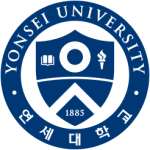About Eon Soo Lee
Associate Professor with Tenure, Mechanical and Industrial Engineering
Principal Investigator, Advanced Energy Systems and Microdevices Laboratory
New Jersey Institute of Technology, University Heights, Newark, NJ
Biography:
 Dr. Eon Soo Lee is an Associate Professor with Tenure in Mechanical and Industrial Engineering and the Principal Investigator in Advanced Energy Systems and Microdevices Laboratory at New Jersey Institute of Technology (NJIT) since 2013. He is an elected Senior Member of the National Academy of Inventors (NAI) since 2020, and was enlisted as Vanguard Leaders in Higher Education in New Jersey by NJBIZ in 2018. He has served as an Associate Editor of Journal of Translational Engineering in Health and Medicine (JTEHM). Dr. Lee is also the Founder and ABONICS, INC which was spun off from NJIT in 2018 for the development of the biochip technology for disease detection, diagnosis and monitoring. The innovative nano biochip technologies pioneered by Dr. Lee simultaneously detect the multiple tumor biomarkers using multi-layered nano-electrode structures with on-chip plasma self-separation mechanism in a single microfluidic channel for the rapid and accurate sensitivity and specificity from the finger prick of blood.
Dr. Eon Soo Lee is an Associate Professor with Tenure in Mechanical and Industrial Engineering and the Principal Investigator in Advanced Energy Systems and Microdevices Laboratory at New Jersey Institute of Technology (NJIT) since 2013. He is an elected Senior Member of the National Academy of Inventors (NAI) since 2020, and was enlisted as Vanguard Leaders in Higher Education in New Jersey by NJBIZ in 2018. He has served as an Associate Editor of Journal of Translational Engineering in Health and Medicine (JTEHM). Dr. Lee is also the Founder and ABONICS, INC which was spun off from NJIT in 2018 for the development of the biochip technology for disease detection, diagnosis and monitoring. The innovative nano biochip technologies pioneered by Dr. Lee simultaneously detect the multiple tumor biomarkers using multi-layered nano-electrode structures with on-chip plasma self-separation mechanism in a single microfluidic channel for the rapid and accurate sensitivity and specificity from the finger prick of blood.
He has also pioneered the nitrogen-doped graphene-based electrochemical nanomaterials with metal-organic framework (N-G/MOF) through a new way of synthesis methodology called high energy wet nano ball milling process, for innovative electrochemical systems. This new N-G/MOF catalyst has surprising performance characteristics comparable to platinum, and the new method shows the successful synthesis of graphene-based nano catalysts.
His pioneered research on graphene-based new electrochemical catalysts and biochip technologies has gained many international recognitions in conferences and journals, and has received many awards including Vanguard Series: Leaders in Higher Education (2018) from NJBIZ, New Jersey Health Foundation Innovation Award (2017), NIH and IEEE Best Design Award (2017), National Science Foundation Innovation-Corps Award (2018 and 2016), TechConnect National Innovation Award (2017), Defense Innovation Award (2017), and the cover page highlight in International Journal of Energy Research (2017).
Dr. Lee’s researches have established sustainable supports and collaborations with the leading institutions including Brookhaven National Laboratory – Center for Functional Nanomaterials, Princeton University – Princeton Institute for Science and Technology of Materials (PRISM), Weill Cornell Medical School, John Theurer Cancer Center at Hackensack University Medical Center (HUMC), and Montclair State University – Material Characterization Laboratory.
Prior to NJIT, He established extensive researches on energy materials, cells and systems, and microscale multiphase flow dynamics and thermal transport in both academia and industries including Stanford University, Samsung, and Hyundai. In particular, at Samsung Electro-Mechanics R&D Center as a Project Group Leader and Principal Research Engineer, Dr. Lee was awarded a prestigious Samsung Technology Award in 2011 due to his significant contribution to the innovative nano materials and electrochemical systems. He has received his Ph.D. (2007) and MS (2004) at Stanford University, and his BS (1999) at Yonsei University, Seoul, Korea, all in Mechanical Engineering.
AWARDS AND HONORS
- Elected to Senior Member of National Academy Inventors (NAI), 2020
- Listed in Vanguard Series: Leaders in Higher Education, 2018, NJBIZ http://www.njbiz.com/article/20180806/NJBIZ01/180809912/vanguard-series-leaders-in-higher-education-2018
- NIH/IEEE-EMBS Best Design Award 2017 (PHD Student: Bharath Babu Nunna), Healthcare Innovation and Point-of-Care Technologies (HI-POCT) 2017 Conference at NIH (Bethesda, MD, Nov 2017)
- Defense Innovation Award 2017, Defense Innovation Technology Acceleration Challenges and SBIR/STTR Innovation Summit (Tampa, FL, Oct 2017)
- New Jersey Health Foundation Innovation Award 2017
- NJIT News Highlights- https://mie.njit.edu/news/eon-soo-lee/
- Innovation New Jersey: Innovation News http://www.innovationnj.net/innovation-news/nj-health-foundation-awards-njits-dr-eon-soo-lee-grant-to-develop-biochip-for-simplified-faster-disease-detection-diagnosis-and-monitoring
- TechConnect National Innovation Award 2017, TechConnect World Innovation Conference & Expo. and National Innovation Summit (Washington, DC, May 2017)
- National Science Foundation- Innovation Corps Program Grant Award, 2016
- Samsung Technology Award 2011
- Sigma Xi: The Scientific Research Honor Society [Full Member], 2017
- Marquis Who’s Who in the World, Marquis Publication, 2009, 2011 editions
- 2000 Outstanding Intellectuals of the 21st Century, IBC, England, 2009-2010
- Keynote Paper, ASME-ICMM 2005
- Best Poster Award, Stanford TFSA Conference, 2005
- LG Yonam Scholarship, LG Yonam Foundation, 1993-1998
- Yonsei Scholarship, Yonsei University, 1992
ACADEMIC AND RESEARCH APPOINTMENTS
- Associate Professor with Tenure, Mechanical and Industrial Engineering, NJIT, 2019 ~
- Assistant Professor (Tenure-Track), Mechanical and Industrial Engineering, NJIT, 2013 – 2019
- Project Group Leader and Principal Research Engineer, Samsung Electro-Mechanics, 2007-2013
- Teaching Assistant, Stanford University, 2006
- Research Assistant, Stanford University, 2003-2007
- Ship Design Engineer, Hyundai Heavy Industries, 1999-2001
EDUCATION

STANFORD UNIVERSITY (Stanford, CA)
Doctor of Philosophy (Ph.D.), Mechanical Engineering – 2007
Ph.D. Thesis: Water Transport in Two-Phase Fuel Cell Microchannels (advised by Prof. John Eaton and Prof. Ken Goodson)
: Fluid Dynamics and Heat Transfer, Thermal Engineering, Fuel Cells, Electrochemistry, New and Renewable Energy System – Experimental and modeling investigations of porous layer flow and porous wall bounded channel flow
– Multiphase flow characterization and visualization in microscale flow using Optical imaging technique
– Heat and mass transfer through porous media and microchannel flow
– Microfluidics and imaging
– Investigations on fuel cell flow and heat transfer

STANFORD UNIVERSITY (Stanford, CA)
Master of Science, Mechanical Engineering – 2004
: Fluid and thermoscience, Fuel cells and Electrochemical energy systems, Turbulence attenuation by particles
– Experimental method approached
– Optical laser imaging using Particle Imaging Velocimetry (PIV) method
– Turbulence dynamics modification by solid particles

YONSEI UNIVERSITY (Seoul, Korea)
Bachelor of Science, Mechanical Engineering – 1999
Fundamental study of Mechanical Engineering
– Fluid mechanics: viscous and inviscid flow
– Thermodynamics, Heat Transfer, and Thermal Analysis
– Solid Mechanics – Dynamics & Statics
– Mechanical vibration – Feedback Controls
CAREER
ASSOCIATE PROFESSOR with TENURE
New Jersey Institute of Technology (Newark, NJ) – 2013 ~ Present
Associate Professor with Tenure in Mechanical and Industrial Engineering (2019 ~)
Assistant Professor (Tenure-Track) of Mechanical and Industrial Engineering (2013-2019)
Founding Director of Advanced Energy Systems and Microdevices (AESM) Laboratory (2013 ~ )
Research interests in electrochemical energy systems (Battery, Polymer Electrolyte Membrane-based or Ceramic Electrolyte Membrane-based electrochemical systems)
– Graphene-based electrochemical nanomaterials for electrode and catalysts
– Nitrogen-doped graphene electrochemical catalysts
– Transition-metal doped non-PGM catalysts
– New set of ceramic-based nanomaterials for anode/electrolyte/cathode, and the innovation of ceramic processing technology
– Nanostructure characterization of electrode/electrolyte layers
– Performance analysis of electrochemical cell/stack/system
– Microscale flow and thermal analysis: battery and fuel cell
Research interests in Biomedical diagnostic microchips (for quick, easy, highly accurate and sensitive tests)
– BioMicrofluidics in micro- and nano-scale flow
– Biofluid self-separation mechanism
– Biomolecular detection using nano-fabricated electrode sensors
– Biomarker detection for Medical applications (w/ Medical Center)
Research interests in Microscale thermal and fluid engineering and imaging/visualization techniques
– Optical/Electron Microscopy imaging and flow dynamics analysis
– Experimental and Numerical investigations on flow and heat transfer in energy and electronic devices
* NJIT News Highlights- https://mie.njit.edu/news/eon-soo-lee/
*New Jersey Health Foundation Innovation Award
http://www.innovationnj.net/innovation-news/nj-health-foundation-awards-njits-dr-eon-soo-lee-grant-to-develop-biochip-for-simplified-faster-disease-detection-diagnosis-and-monitoring

PROJECT GROUP LEADER and PRINCIPAL RESEARCH ENGINEER
Samsung Electro-Mechanics, Corporate R&D Institute
2007 – 2013, Suwon, Korea
Principal Research Engineer and Group Leader of Fuel Cell Research Group in Samsung E-M
– Innovated the thin electrolyte layer process technology
– Established the setup of anode/electrolyte/cathode materials
– Innovated the nano powder processing technology
– Established high-performance cell technology based on nanopowder
– Managed over ~US$20M multi-projects as the Principal Investigator of the project.
– Led the core research group, including all PhDs from top universities in US, Japan and Korea.
Electrochemical energy materials and system, fuel cells, batteries and renewable energy
: polymer electrolyte membrane-based electrochemical materials and systems,
: ceramic-based electrolyte membrane electrochemical energy systems
: nano materials for anode/electrolyte/cathode of electrochemical system
: thermal management and fluid engineering
: materials engineering, esp. in conductive ceramic materials

SHIP DESIGN ENGINEER
Hyundai Heavy Industries Co., Ltd.; Headquarter
1999 – 2001, Ulsan, Korea
Ship Design Engineer
– designed large commercial ships; Container Carriers, VLCC, Bulk Carriers
– designed deck machinery and outfittings
Ship Vibration Specialist
– analyzed and solved the ship vibrations coupled with the vibrations of the main engine and propellers onsite.

